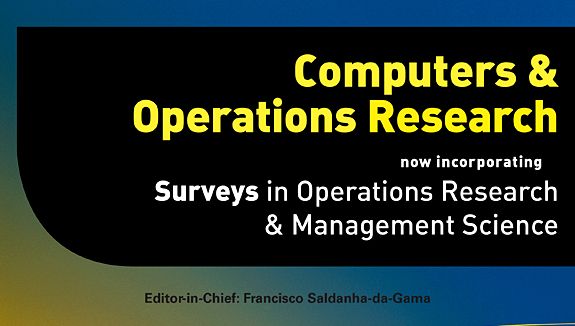| Name |
|---|
|
_ga
|
|---|
| Zweck |
Wird verwendet, um Benutzer zu unterscheiden.
|
| Ablauf |
2
Jahre
|
| Anbieter |
Google
|
|
_gid
|
|---|
| Zweck |
Wird verwendet, um Benutzer zu unterscheiden und die Nutzung der Website zu analysieren. Es werden anonyme Daten zur Anzahl von Besuchern, die besuchten Seiten und die Quelle des Zugriffes erfasst.
|
| Ablauf |
1
Tag
|
| Anbieter |
Google
|
|
_gcl_au
|
|---|
| Zweck |
Wird verwendet, um zwischen User und Userverhalten zu unterscheiden.
|
| Ablauf |
3
Monate
|
| Anbieter |
Google
|
|
_gac_UA-112203476-1
|
|---|
| Zweck |
Enthält Kampagneninformationen und dient der Messung des Kampagnenerfolges von Google AdWords Kampagnen.
|
| Ablauf |
90
Tage
|
| Anbieter |
Google
|
|
test_cookie
|
|---|
| Zweck |
Wird testweise gesetzt, um zu prüfen, ob der Browser das Setzen von Cookies erlaubt. Enthält keine Identifikationsmerkmale.
|
| Ablauf |
15
Minuten
|
| Anbieter |
Google
|
|
IDE
|
|---|
| Zweck |
Enthält eine zufallsgenerierte User-ID. Anhand dieser ID kann Google den User über verschiedene Websites domainübergreifend wiedererkennen und personalisierte Werbung ausspielen.
|
| Ablauf |
1
Jahr
|
| Anbieter |
Google
|
|
_gcl_aw
|
|---|
| Zweck |
Dieses Cookie wird gesetzt, wenn ein User über einen Klick auf eine Google Werbeanzeige auf die Website gelangt. Es enthält Informationen darüber, welche Werbeanzeige geklickt wurde, sodass erzielte Erfolge wie z.B. Bestellungen oder Kontaktanfragen der Anzeige zugewiesen werden können.
|
| Ablauf |
3
Monate
|
| Anbieter |
Google
|
|
AMCV_xx
|
|---|
| Zweck |
Enthält eine zufallsgenerierte User-ID. Anhand dieser ID kann die Adobe Marketing Cloud den User über verschiedene Websites domainübergreifend wiedererkennen und personalisierte Werbung ausspielen.
|
| Ablauf |
3
Jahre
|
| Anbieter |
LinkedIn
|
|
bcookie
|
|---|
| Zweck |
Enthält eine ID des Browsers.
|
| Ablauf |
2
Jahre
|
| Anbieter |
LinkedIn
|
|
bscookie
|
|---|
| Zweck |
Enthält eine ID des Browsers bei einer sicheren Verbindung.
|
| Ablauf |
2
Jahre
|
| Anbieter |
LinkedIn
|
|
lang
|
|---|
| Zweck |
Wird verwendet, um die Spracheinstellung des Besuchers zu speichern.
|
| Ablauf |
Session
|
| Anbieter |
LinkedIn
|
|
lidc
|
|---|
| Zweck |
Wird verwendet, um Benutzer zu unterscheiden und die Nutzung der Website zu analysieren. Es werden anonyme Daten zur Anzahl von Besuchern, die besuchten Seiten und die Quelle des Zugriffes erfasst.
|
| Ablauf |
1
Tag
|
| Anbieter |
LinkedIn
|
|
lissc
|
|---|
| Zweck |
Wird für die Analyse der Nutzung von eingebetteten Dienstleistungen verwendet.
|
| Ablauf |
1
Jahr
|
| Anbieter |
LinkedIn
|
|
UserMatchHistory
|
|---|
| Zweck |
Enthält Kampagneninformationen und dient der Messung des Kampagnenerfolges.
|
| Ablauf |
30
Tage
|
| Anbieter |
LinkedIn
|
|
fr
|
|---|
| Zweck |
Enthält Kampagneninformationen und dient der Messung des Kampagnenerfolges.
|
| Ablauf |
90
Tage
|
| Anbieter |
Facebook
|
|
fbp
|
|---|
| Zweck |
Wird von Facebook genutzt, um eine Reihe von Werbeprodukten anzuzeigen, zum Beispiel Echtzeitangebote dritter Werbetreibender.
|
| Ablauf |
90
Tage
|
| Anbieter |
Facebook
|
|
sc_at
|
|---|
| Zweck |
Wird verwendet, um Benutzer über mehrere Domains hinweg zu unterscheiden.
|
| Ablauf |
1
Jahr
|
| Anbieter |
Snap
|
|
sc-country
|
|---|
| Zweck |
Dieses Cookie unterscheidet das Land des Benutzers.
|
| Ablauf |
1
Tag
|
| Anbieter |
Snap
|
|
uid
|
|---|
| Zweck |
Dieses Cookie enthält eine zufallsgenerierte User-ID und wird für das Ausspielen und die Echtzeitermittlung der Preise für Anzeigen für differenzierte Zielgruppen verwendet.
|
| Ablauf |
60
Tage
|
| Anbieter |
Adform
|
|
C
|
|---|
| Zweck |
Identifiziert und speichert ob Nutzer Cookies akzeptieren. Wert 1: Cookies sind erlaubt, Wert 3: Cookies sind nicht erlaubt.
|
| Ablauf |
30
Tage
|
| Anbieter |
Adform
|
|
_scid_r
|
|---|
| Zweck |
Wird verwendet, um User anhand einer eindeutigen ID zu identifizieren und maßgeschneiderte Werbung basierend auf den Useraktivitäten zu liefern. Es dient zur Optimierung von Werbeinhalten und Kampagnen.
|
| Ablauf |
13
Monate
|
| Anbieter |
Snapchat
|
|
_scid
|
|---|
| Zweck |
Wird verwendet, User anhand einer eindeutigen ID zu identifizieren und über verschiedene Websites hinweg zu verfolgen und gezielte Werbung basierend auf dem Userverhalten anzuzeigen.
|
| Ablauf |
13
Monate
|
| Anbieter |
Snapchat
|
|
X-AB
|
|---|
| Zweck |
Cookie steht in Zusammenhang mit Snapchat-Inhalten.
|
| Ablauf |
1
Tag
|
| Anbieter |
Snapchat
|
|
_ScCbts
|
|---|
| Zweck |
Wird verwendet, um Werbeanzeigen zu optimieren, Inhalte zu personalisieren, Sicherheitsmaßnahmen zu verbessern und die Nutzung zu analysieren.
|
| Ablauf |
7
Tage
|
| Anbieter |
Snapchat
|
|
li_gc
|
|---|
| Zweck |
Wird verwendet, um die Cookie-Einstellungen für User ohne LinkedIn Registrierung zu speichern.
|
| Ablauf |
6
Monate
|
| Anbieter |
LinkedIn
|

 Zur JKU Startseite
Zur JKU Startseite








